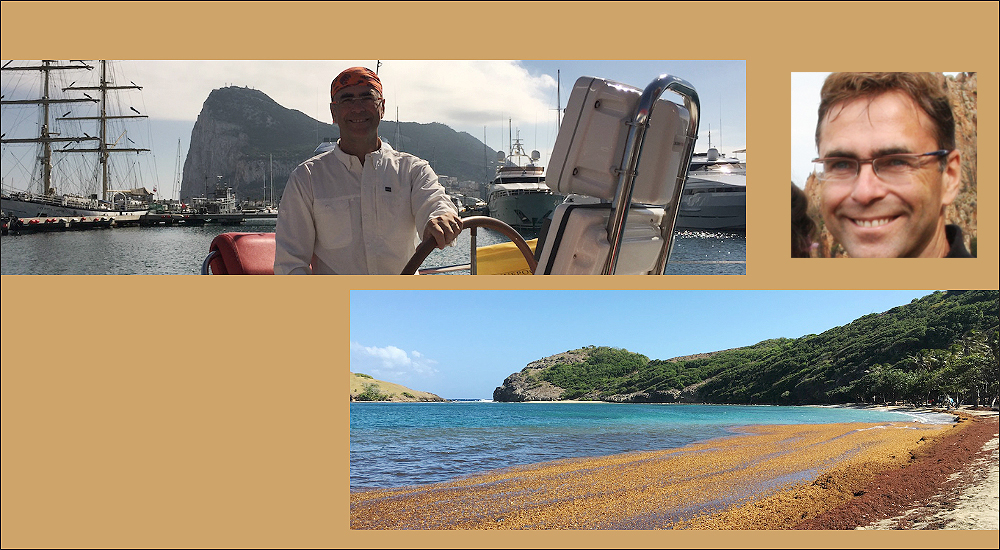Crossing the Atlantic takes careful preparation, stamina, focus and, most of all, courage. When my family and I set sail late last year as part of the Atlantic Odyssey, a rally that sees 40 yachts cross from the Canary Islands to Martinique, I knew that as the captain of the vessel I had an important role to play.
Even though this was something I had never done before, I knew I had to show strength and confidence. My crew, which included my family, brother-in-law, and a good friend, had to trust me. While I knew, I could draw on my career experience as a director, I did not realise how much this trip would teach me about leadership.
#1 Be open to discovery
We spent 18 months planning our trip, but once you are out on the water things are very different. You cannot really predict what will happen and this was the great part of the adventure.
One thing I learned is that you cannot impose your own will on the sea. It is rough and unpredictable. Just as you have to adapt to life at sea, you have to adapt to changes in business. Of course, you must have expectations but you must also take things, and deal with things, as they come. You have to be open to the adventure.
#2 Obstacles are never a reason for failure
At any point in our Atlantic journey, it would have been easier to give up, to go back. Soon after setting off, two of our four steering cables broke. We adopted a forward-looking mindset: we would continue, we just had to find how to continue.
A brainstorm with the crew, over wine or coffee, presented some creative alternatives that would allow us to use other materials on the boat to complete the crossing. For me this was a reaffirmation of leadership. As a captain, you must remain calm and find a solution. Find a reason to go on, not to give up.
#3 Manage a crisis constructively
Another crisis we faced was the breakdown of our generator. This meant we had lost our desalinator and would have to drastically limit our use of fresh water. After assessing the situation, we knew we had to limit our water usage to 40 litres a day for a crew of six.
In effect, that meant seven – yes, just seven litres of water for each of our six crew members to use for drinking, showering, and so forth. This showed me that controlling and managing a crisis early on limits the damage it can do. It also proved that if we have to, we all have the ability to adapt to sudden changes in our environment.
#4 Make people accountable
During our time at sea, every crew member, including my teenage daughter, had shifts and tasks assigned to them, whether it was cleaning or cooking or making repairs to the boat.
This was important from an organisational point of view, but it was also important for another reason: fairness. We were all on this journey together, spending weeks together in close proximity. As the captain of a boat or a team at work, you have to keep morale up. True leadership is about collaboration, not confrontation. When everyone is doing their bit, there is little chance for resentment or conflict.
#5 Believe in change
The Atlantic Odyssey, a rally organised by Cornell Sailing, attracts participants from all over the world, from the US, Europe, and Australia. We met retired couples and young families. Some were entrepreneurs but many were from the corporate world.
What united us was a shared belief: that we wanted to, and could, change our lives and the world around us. For our family, it was helping as citizen scientists to gauge the effect of global warming on our oceans. Other participants were spending up to a year at sea and facing their own challenges.
#6 Time-off is good for health
After the crossing to Martinique, we had a few weeks off to explore island life in St Lucia, St Vincent, right up to Grenada as the southernmost port. We would swim, snorkel, or walk on the beach with no itinerary or pressure. Sometimes in our day-to-day lives we push ourselves too hard or too far. The crazy pace does not allow for much introspection. We have a narrow field of vision; we only see one side of things.
The experience at the tail end of our adventure allowed me to reset perceptions. As a leader, you need to know what is important to the bigger picture and, also, what is less important.
So would I do it again? Yes, I would, but perhaps not right away.
This journey allowed me to know myself and my family better. And it proved to me that whatever you want in your life or career, you can find the courage to make it happen. If you want it bad enough, and if you believe in your goal so much you can see it ahead of you all the time.
My motto is to be consistently persistent. Words to live by in sailing, in business and, yes, in life too!
This blog was written by Michel Ghys of Dimension Data and originally appeared in May 2016.
Click below to share this article

